![]() The information provided by our expert should not constitute a diagnosis of your condition. Always consult a medical practitioner or healthcare provider for a formal diagnosis. By making use of this content, you agree that ConceiveEasy and the expert assume no liability.
The information provided by our expert should not constitute a diagnosis of your condition. Always consult a medical practitioner or healthcare provider for a formal diagnosis. By making use of this content, you agree that ConceiveEasy and the expert assume no liability.

You and your partner are wanting to try for a baby! Congratulations on making the decision to expand your family and there are things you need to know before you start trying to achieve a conception. Claim Your 20 Free Pregnancy Tests – Click Here
The first thing you need to do is consult your doctor before trying, and there are steps you need to take before you even begin trying. Therefore, it is not advisable to start attempting to conceive the same month that you had decided to do so.
Your doctor will need to check your blood pressure, blood sugar levels and weight. If you are overweight or underweight, you will need to make adjustments in order to end up at an acceptable weight where it is not only safe to conceive but at a weight where you are likely to conceive.
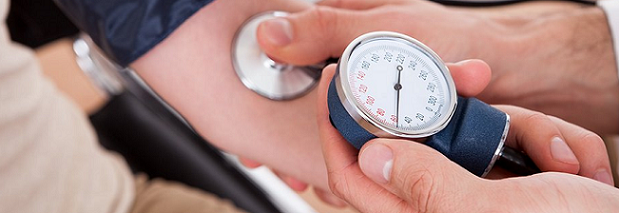
Being extremely overweight or extremely underweight will hinder your chances of conceiving due to the fact that ovulation may not be happening or maybe irregular since the lack of or excessive weight will have a negative effect on hormone levels and production.
You want to make sure your blood pressure is in the normal range because if you get pregnant while your blood pressure is high, you could be facing possible pregnancy complications like preeclampsia. This way, if it is known that your blood pressure is in the higher range, you will be monitored closely during your pregnancy and you will be prepared to do this.
If your blood sugar is high, even if you are not diabetic (but higher fasting blood sugar can suggest you are pre-diabetic), then you are at a higher risk for developing gestational diabetes while you are pregnant, which can be controlled but is serious for you and the baby if it is not.
You will also have to make lifestyle changes and follow the fertility diet as well. That said, your doctor will probably recommend that you see a nutritionist or dietician that either is knowledgeable about the fertility diet or better yet, specializes in that. Even if you do not need to make any kind of significant weight changes. But you will need to prepare your body as much as possible for a conception.

You will also need to start taking prenatal vitamins as well as folic acid a good 3 months or longer before trying to conceive so the nutrients that your baby will need is in your system. Folic acid helps prevent serious neural tube defects in the unborn baby as well as spinal Bifida.
You will also need to see your doctor for another important reason. You will need to start charting your cycles because you will need to know when the best time to have intercourse is if you are close to ovulation, which is the ideal time to have sex. If you start to have sex after ovulation, then you will not likely get pregnant because once the egg is released, it is only good for 12-24 hours after. Sure, there is a chance you could get pregnant after ovulation and carry it successfully to term and have a healthy baby; however, the odds are not in your favor.
Therefore, it is best to have intercourse a day before ovulation, and 3 days before as well.
The sperm can live in the reproductive system for about 5 days and sometimes even a week. Therefore, the ideal situation is that there is already sperm in your fallopian tubes waiting for the egg to be released. Once it is, it is fresh and ready to be fertilized.

The way a cycle works is once you are done with your period, your hormones are at work, which are estrogen, the follicle stimulating hormone (FSH) and luteinizing hormone (LH), as well as others are the responsible for your egg or eggs maturing. These hormones are also responsible for growing the endometrium, which is the lining of the uterus for the possibility of the fertilized egg being implanted.
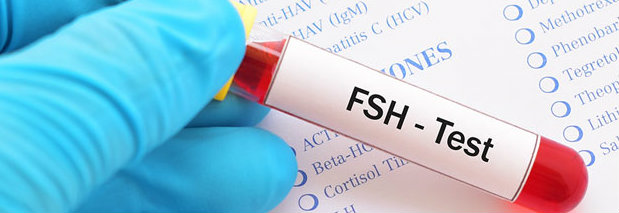
That means once your period is on and over, an egg or two eggs are beginning to grow, and when you are in the middle of your cycle, your egg or eggs are mature enough to be released. Right before the release, your LH rises right before ovulation. Therefore, the egg is released from the follicle that has been growing. The endometrium is also thick enough for implantation.
After the egg is released, it is waiting for fertilization and the follicle that held the egg is now called the corpus luteum which is responsible for releasing progesterone to keep the endometrium intact so implantation happens. The phase after ovulation is called the luteal phase which lasts on average for 14 days. This phase is crucial to allow implantation to take place.
However, if the egg or eggs were not fertilized at all, then the egg or eggs will disintegrate and the corpus luteum will also disintegrate by the end of the luteal phase- meaning the progesterone levels drop, as well as the other hormones. Therefore, the endometrium begins to shed which is menstruation. Your period is the endometrium that is shedding due to the fact that no egg was fertilized, and then the next cycle begins again after the fact.
Now that you know how your cycle works, that right there is half the battle! That being said, the key here is to know when that best time for you to conceive by monitoring your cycle, and there are several ways to do this.

If your cycles are irregular, then some methods may not work like the calendar method, and it is fine if you have cycles that are irregular by a couple of days here and there. However, if your cycles are irregular by weeks or if you have a tendency to skip a month or two, then there may be an issue that will have to be addressed with your doctor.
But before you start running back to the doctor just for this reason, you will still need to chart your cycles regardless. If you have done that for 3 months or 3 cycles and have not found yourself ovulating at all, or ovulating just one time then you will need some medical help in order to help you ovulate regularly.
However, this method is only good for those who have very regular cycles, and this one is called the calendar method.

The way the calendar method works is that you need to calculate how many days your typical cycles are. The average cycle is 28 days but some women have 35-day cycles. It does not even matter how many days your cycles are- as long as they are for the most part regular.
Therefore, you take the number of days of your cycle and subtract it by 14 (because 14 represents your luteal phase as discussed earlier). That is the day that you are likely ovulating. That said, if you have 28-day cycles, then you are ovulating on or around day 14. This means your fertile days begins on day 11, and that is when you would want to have intercourse, and then again at day 13. You don’t want to have sex every 24 hours because the sperm concentration will deplete. It is best to have intercourse every 48 hours so the sperm count replenishes. Remember that sperm lasts up to a week, but usually lasts on average 5 days in the reproductive tract.
That also means if your cycles are 35 days long on average, then you are likely ovulating on day 21. That means your fertile days start from day 18, so you will want to have intercourse on day 18 and then day 20.
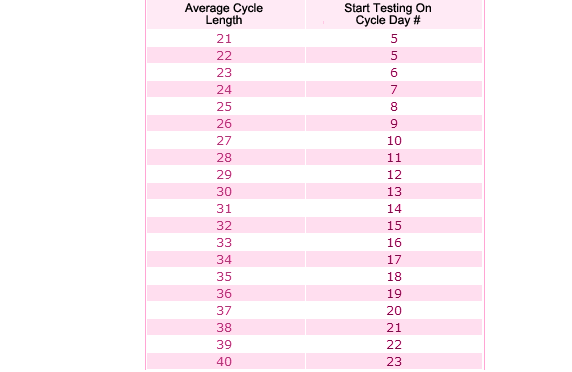
Some women have 21-day cycles, so that would mean that ovulation is likely happening on day 7! That means right after your period is done, around day 4 or 5 is the time to get busy. But that is more the exception than the rule.
Again the calendar method can be used for however long your cycles are- as long as they are for the most part regular. This will not work for cycles that are for the most part irregular.
However, you will want to also confirm that you are ovulating 14 days before your cycle ends- because if you are ovulating later than you think and your luteal phase is only 10 days then there is a problem as well that will need to be addressed since there is not enough progesterone to maintain a pregnancy and you would lose the fertilized egg during menstruation. The way to find out for sure if you are ovulating when you think you are is to use a body basal thermometer to take your temperature each morning.

Your doctor will probably tell you to take your temperature with a body basal thermometer (BBT) each morning before you move at all. You can get these thermometers from Walgreens or CVS. What you do is get graph paper as well so you can mark where your temperature is. You will want to place the thermometer right on your nightstand by your side so you don’t have to move much while taking it right after waking up. That is the first thing you do before going to the bathroom and brushing your teeth. You take your temperature, mark it on the paper and if there is a slight increase, less than 1 degree Fahrenheit, then that is a sign that you have ovulated and the temperature stays up until you get your period again.
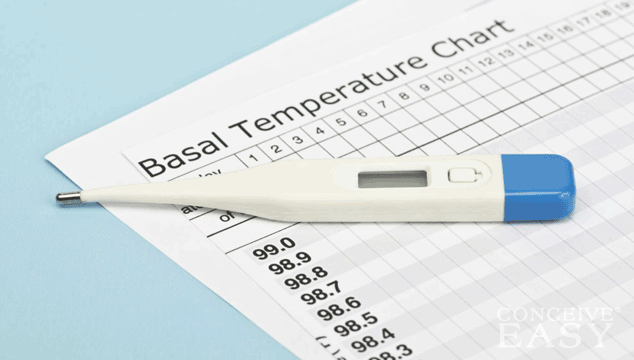
Take your BBT for 3 months and compare the graphs so you can get a good idea of when you are ovulating. If it is more irregular than you thought and the calendar method was wrong, then that is good to know as well. The next thing to do is essential for knowing when you are fertile and that is by checking the cervical mucus consistency.

The cervical mucus consistency is a clear indicator as well as how fertile you are. That means right after your period, it is scant and dry because you are not fertile at this time (unless you have a 21-day cycle), but as the cycle progresses it becomes sticky and cloudy. Right before ovulation, around 3 days before, it becomes abundant and has a texture of raw egg-whites and that is your most fertile time.
The mucus has that consistency because it helps the sperm move along into the tract. After ovulation has happened, the mucus becomes sticky and cloudy again, therefore you are no longer fertile for that cycle. Checking the mucus consistency is also important if you have slightly irregular cycles. There is one more way to check how fertile you are, while you are checking your cervical mucus texture.


Purchasing ovulation predictor kits (OPKs) are not the first thing to recommend, as the others discussed above must be tried out first when finding your fertile days in your cycles. It is best to use OPK’s as a confirmation for when you suspect you are fertile while checking your cervical mucus and after you have charted your cycles by using a BBT. Especially if your cycles are not completely regular. The OPK will detect LH in the urine, and if there is a surge, then you are ready to ovulate.
Those are the ways to calculate and track your fertile days. If you have tried charting by using these methods and you are finding that you are not ovulating, then that means there is a problem which needs to be looked into. In most cases, if your cycles are regular or even a little irregular, you are ovulating, but if you are off by weeks and you are missing months even- then you will need to be examined because you will need some help in order to get yourself ovulating so you can achieve a pregnancy and have a successful delivery to a healthy baby at the end!
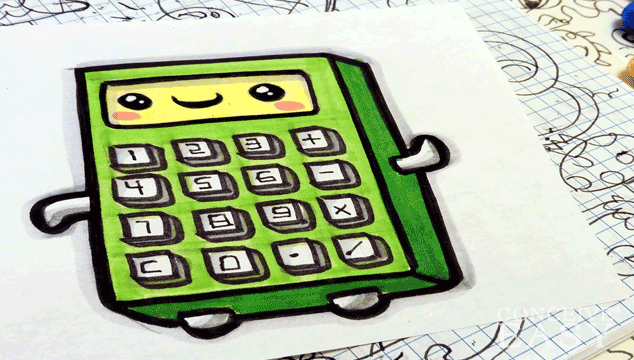









Comments